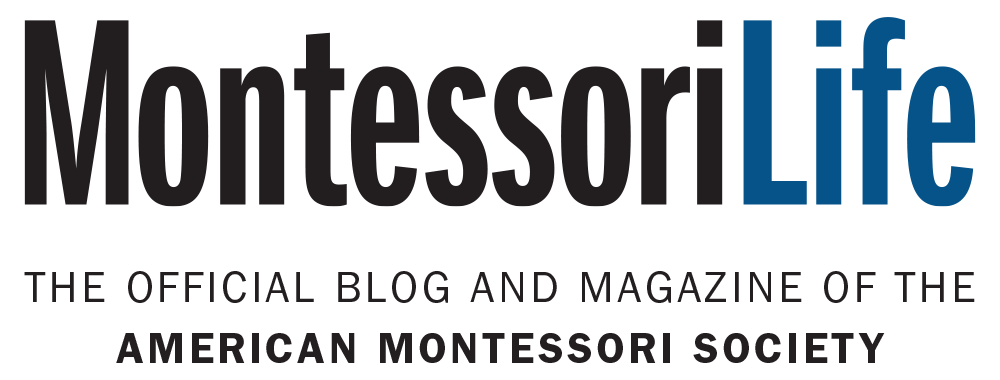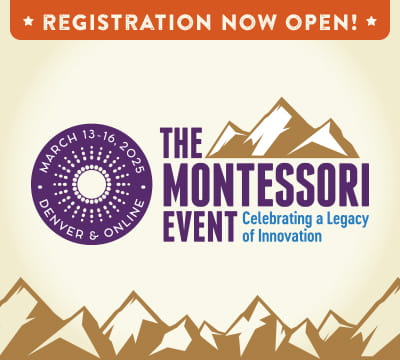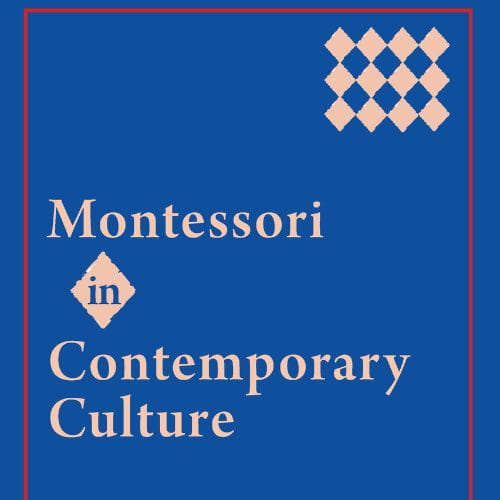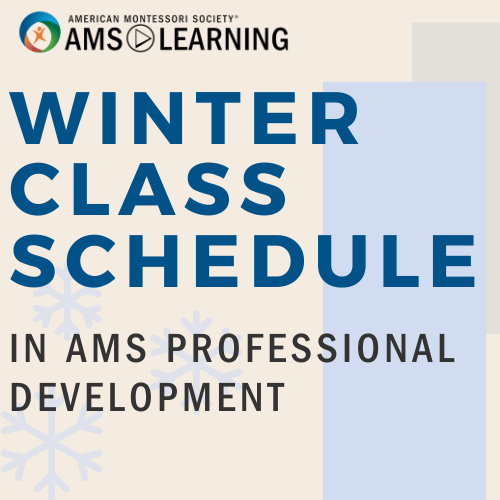Four Ways Administrators Can Support a Montessori Guide’s Ongoing Transformation

Developing a deep, spiritual self-awareness allows a Montessori guide to more meaningfully connect with children and to become more adept at nurturing their inner spirits. Learning to respect children and one’s self requires an intense personal transformation and years of dedication. Dr. Maria Montessori described this spiritual transformation as a process that requires systematically studying oneself through thoughtful inner work. An administrator’s role is to support guides along their transformative journey and to provide them with the resources necessary for continual learning and growth.
Dr. Montessori provided detailed descriptions of the ideal classroom teacher. She painted a portrait of a prepared adult who recognizes the child as the director of their own education and accepts their role as a guide and facilitator for the child. Although the training to become a Montessori teacher is quite extensive, Dr. Montessori noted, "The real preparation for education is the study of oneself. The training of the teacher who is to help life is something far more than the learning of ideas. It includes the training of character; it is a preparation of the spirit” (Montessori 1995, 132). This spiritual preparation is a lifelong journey that requires practice, dedication, and introspection.
As creative director of Baan Dek Montessori in Sioux Falls, SD, Bobby George, says, “For Montessori, if teachers are to meet children where she believes they need to be met… they need to adopt an open mind, subject themselves to the power of transformation, and start fresh.” This process of starting fresh can feel very overwhelming for guides and finding out this journey requires committing to a continuous, ongoing transformation, can make it seem even more daunting. An administrator plays a vital role in this process, supporting and encouraging the guide throughout each step of their journey.
Here are four ways administrators can support a guide’s ongoing transformation:
 Ensure the guide has time built into their schedule each day for self-care and reflection.
Ensure the guide has time built into their schedule each day for self-care and reflection.
In order to truly connect with others, one must first connect with themselves. This process of inner reflection and understanding does not necessarily require a significant amount of time; even just a few minutes of solitude each day can positively impact one’s mood and the quality of their interactions with others.
Arranging a guide’s schedule to provide them a few moments alone (outside of their lunch break and planning times) to allow them to engage in calming exercises such as deep breathing, yoga, meditation, or journaling is likely to elicit a sense of tranquility and to help them feel more connected to their bodies. The peacefulness and understanding these few moments can yield will likely be carried with them as they re-enter the classroom, freeing them to foster meaningful connections with their students.
Provide opportunities for professional development.
Just as guides seek to motivate students to become lifelong learners, administrators should hope to encourage the same amongst guides. Staying up to date on research related to the field of education empowers guides to make positive impacts in the classroom and provides them with the knowledge necessary for their continued transformation.
As an administrator, you can sponsor a guide's attendance at a professional conference, enabling them to deepen their knowledge on a specific topic, such as reading or Autism Spectrum Disorders, or to expand their understanding of Montessori education in general. This can be done through annual conferences offered by organizations like the American Montessori Society and the International Montessori Council.
Other professional development opportunities include arranging and hosting on-site workshops by local professionals including school psychologists, occupational therapists, and speech and language pathologists. Leading book discussions at faculty meetings can also help guides to continue gaining knowledge relevant to their classroom practices.
Create mentor relationships amongst faculty and staff for support.
Ensuring guides feel supported is perhaps one of the most crucial elements to their success, both personally and professionally. Developing mentor relationships between established and new faculty members can not only promote learning, but can help guides feel as though they have someone to reach out to when they have questions or need advice. These supportive relationships bring a sense of peace that help guides stay motivated as they continue on their transformative path.
Provide opportunities for anti-bias, antiracist (ABAR) education for staff.
ABAR education helps to create healthy inclusive environments for staff, who are then able to help create those same emotionally, mentally, and physically safe and secure spaces for students. This includes providing training and professional development plans centered around equity and antiracist practices that encourage faculty to reflect on their own biases and to bring awareness into the classroom.
Administrators have a responsibility to support their classroom guides. By creating time for self-care, sponsoring professional development opportunities, and developing mentor relationships amongst faculty members, administrators can ensure guides feel adequately supported throughout their ongoing spiritual transformation.
References
Maria Montessori, The Absorbent Mind (New York: Holt Paperbacks, 1995), 132.
About the Author

Heather White |
Interested in writing a guest post for our blog?
Let us knowThe opinions expressed in Montessori Life are those of the authors and do not necessarily represent the position of AMS.
















